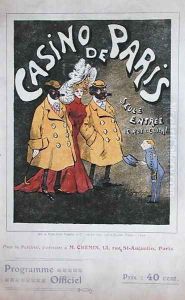Jacques Charles Paintings
Jacques Charles was a French inventor, scientist, mathematician, and balloonist most famously known for his pioneering work in gas balloon technology. Born on November 12, 1746, in Beaugency-sur-Loire, France, Charles was initially educated as a musician before turning his attention to the sciences.
Charles began his career as a clerk at the finance ministry but he pursued his scientific interests in his free time. He became a professor of physics at the Académie Royale de Sciences in 1781, where he conducted experiments in electricity and other areas of physics. He is most notably recognized for his invention of the hydrogen-filled balloon, also known as the Charlière (after his name).
His work on gases led him to formulate what is now known as Charles's Law, which describes how gases tend to expand when heated. In 1783, he designed and built the world's first hydrogen-filled balloon, and it successfully flew on August 27 of that year. A few months later, on December 1, Charles and one of his assistants, Nicolas-Louis Robert, made a manned flight in another of his hydrogen balloons, becoming the second humans to fly in a lighter-than-air craft, after the Montgolfier brothers' hot-air balloon flight earlier that year.
Although not as famous as the Montgolfier brothers, Charles made significant contributions to the field of aeronautics. His developments in balloon technology paved the way for future exploration of the atmosphere. In addition to his aeronautical achievements, Charles was also an accomplished mathematician and a member of the French Academy of Sciences.
Jacques Charles never married and had no children. He largely withdrew from public life and scientific research after the French Revolution due to the political climate of the time. Charles died on April 7, 1823, in Paris, France, leaving behind a legacy of scientific inquiry and adventure that would inspire generations to come.
